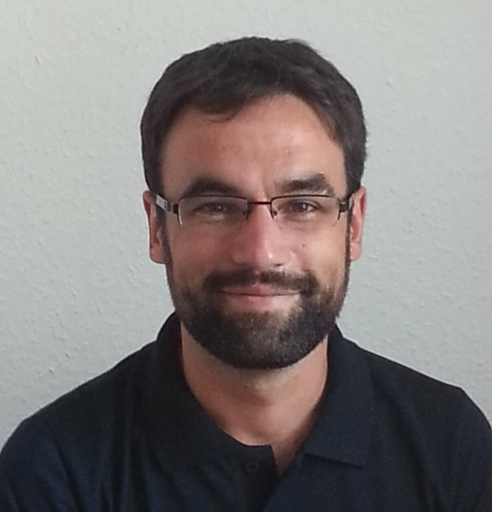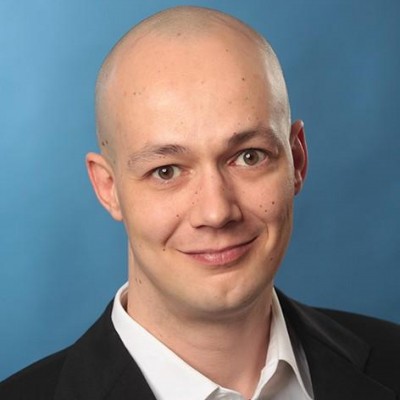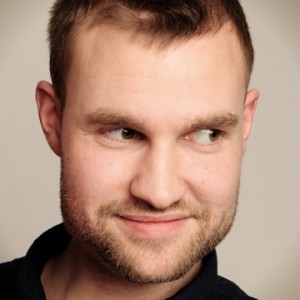At next year’s LREC conference, AKSW/KILT members Bettina Klimek and Sebastian Hellmann will co-organize the next Linked Data in Linguistics Workshop. Please find the call for paper below. Thank you for submitting.
Call for Papers: 5th Workshop on Linked Data in Linguistics (LDL-2016): Managing, Building and Using Linked Language Resources
Portorož, Slovenia, 24th May 2016. Co-located with LREC 2016
Website: http://ldl2016.linguistic-lod.org/
Submission Deadline : February 8th 2016
Publishing language resources under open licenses and linking them together has been an area of increasing interest in academic circles, including applied linguistics, lexicography, natural language processing and information technology. It facilitates the exchange of knowledge and information across disciplines as well as between academia and the IT business. By collocating the 5th edition of the workshop series with LREC 2016, we encourage this interdisciplinary community to present and to discuss use cases, experiences, best practices, recommendations and technologies among each other and in interaction with the language resource community. We particularly invite contributions discussing the application of the Linked Open Data paradigm to linguistic data as it might provide an important step towards making linguistic data: i) easily and uniformly queryable, ii) interoperable and iii) sharable over the Web using open standards such as the HTTP protocol and the RDF data model.
While it has been shown that Linked Data has significant value for the management of language resources in the Web, the practice is still far from being an accepted standard in the community. Thus, it is important that we continue to push the development and adoption of Linked Data technologies among creators of language resources. In particular, Linked Data’s ability to increase the quality, interoperability and availability of data on the Web has lead us to focus on managing, improving and using language resources on the Web as a key focus for this year’s workshop.
We invite presentations of algorithms, methodologies, experiments, use cases, project proposals and position papers regarding the creation, publication or application of linguistic data collections and their linking with other resources, as well as descriptions of such data. This includes, but is not limited to, the following:
- Building linked language resources
- Novel vocabularies for describing linguistic objects using RDF.
- Metrics and methodologies to develop linked language resources on the Web.
- Natural language processing methods to enhance Linked Open Data.
- Managing linked language resources
- Creating, maintaining and accessing language resource infrastructures based on Linked Data.
- Metadata linking and curation for language resources on the Web.
- Best practices for publication and linking of multilingual knowledge resources.
- Using linked language resources
- Application of Linked Open Data for linguistics, digital humanities and natural language processing.
- Addressing challenges of scalability, multilinguality and interoperability in the Web.
- Legal, social and scientific aspects of Linguistic Linked Open Data.
We invite both long (8 pages plus 2 pages of references, formatted according to the LREC guidelines) and short papers (4 pages plus 2 pages of references) representing original research, innovative approaches and resource types, use cases or in-depth discussions. Short papers may also represent project proposals, work in progress or data set descriptions. Papers will be published as part of the LREC workshop proceedings and presented as oral or poster presentations, as appropriate.
Datasets
We encourage submission of datasets and ask that these resources are included in the LLOD cloud (instructions can be found here). As such we require that datasets are either described in Datahub with sufficient metadata to be added to the cloud. In addition, as part of the LREC conference your resource will be described in the LRE Map and assigned an International Standard Language Resource Number (ISLRN, www.islrn.org), a Persistent Unique Identifier to be assigned to each Language Resource.
Important Dates
Submission Deadline : February 8th 2016
Notification of Acceptance: March 10th 2016
Camera-Ready: March 24th 2016
Workshop: May 24th 2016
Organizers
- Christian Chiarcos (Goethe-Universität Frankfurt am Main, Germany)
- John Philip McCrae (National University of Ireland, Galway, Ireland)
- Thierry Declerck (University of Saarland, Germany)
- Elena Montiel (Universidad Politécnica de Madrid, Spain)
- Petya Osenova (Sofia University and IICT-BAS, Bulgaria)
- Sebastian Hellmann (AKSW/KILT, Universität Leipzig, Germany)
- Julia Bosque Gil (Universidad Politécnica de Madrid, Spain)
- Bettina Klimek (AKSW/KILT, Universität Leipzig, Germany)
Program Committee
- Guadalupe Aguado (Universidad Politécnica de Madrid, Spain)
- Núria Bel (Universitat Pompeu Fabra, Spain)
- Claire Bonial (University of Colorado at Boulder, USA)
- Paul Buitelaar (National University of Ireland, Galway, Ireland)
- Steve Cassidy (Macquarie University, Australia)
- Nicoletta Calzolari (ILC-CNR, Italy)
- Damir Cavar (Eastern Michigan University, USA)
- Philipp Cimiano (Bielefeld University, Germany)
- Gerard de Melo (Tsinghua University, China)
- Alexis Dimitriadis (Universiteit Utrecht, The Netherlands)
- Judith Eckle-Kohler (Technische Universität Darmstadt, Germany)
- Francesca Frontini (ILC-CNR, Italy)
- Jeff Good (University at Buffalo, USA)
- Asunción Gómez Pérez (Universidad Politécnica de Madrid, Spain)
- Jorge Gracia (Universidad Politécnica de Madrid, Spain)
- Yoshihiko Hayashi (Waseda University, Japan)
- Nancy Ide (Vassar College, USA)
- Fahad Khan (ILC-CNR, Italy)
- Vanessa Lopez (IBM Europe, Ireland)
- Steven Moran (Universität Zürich, Switzerland/Ludwig Maximilian University, Germany)
- Roberto Navigli (University of Rome, “La Sapienza”, Italy)
- Sebastian Nordhoff (Max Planck Institute for Evolutionary Anthropology, Leipzig, Germany)
- Antonio Pareja-Lora (Universidad Complutense Madrid, Spain)
- Maciej Piasecki (Wroclaw University of Technology, Poland)
- Francesca Quattri (Hong Kong Polytechnic University, Hong Kong)
- Laurent Romary (INRIA, France)
- Felix Sasaki (Deutsches Forschungszentrum für Künstliche Intelligenz, Germany)
- Andrea Schalley (Griffith University, Australia)
- Gilles Sérraset (Joseph Fourier University, France)
- Kiril Simov (Bulgarian Academy of Sciences, Sofia, Bulgaria)
- Milena Slavcheva (JRC-Brussels, Belgium)
- Aitor Soroa (University of the Basque Country, Spain)
- Armando Stellato (University of Rome, Tor Vergata, Italy)
- Piek Vossen (Vrije Universiteit Amsterdam, The Netherlands)
 In the incoming AKSW Colloquium, scheduled for the 14th of December at 3 PM,
In the incoming AKSW Colloquium, scheduled for the 14th of December at 3 PM, 

 On November 30 at 3 PM,
On November 30 at 3 PM,  (right) will present SCARO. Afterwards,
(right) will present SCARO. Afterwards, 
 René Speck
René Speck GraphLab is a graph-based distributed computation framework. It was developed from 2009 at Carnegie Mellon University. At that time it was competing with Hadoop on Graph processing. The typical example algorithm demonstrated with it is the PageRank calculation. It still appears today in the Spark GraphX documentation as a filler for the computation step. We will look at the architecture, sample code and what happened to GraphLab today.
GraphLab is a graph-based distributed computation framework. It was developed from 2009 at Carnegie Mellon University. At that time it was competing with Hadoop on Graph processing. The typical example algorithm demonstrated with it is the PageRank calculation. It still appears today in the Spark GraphX documentation as a filler for the computation step. We will look at the architecture, sample code and what happened to GraphLab today.
 On November 2nd at 3 PM,
On November 2nd at 3 PM, 